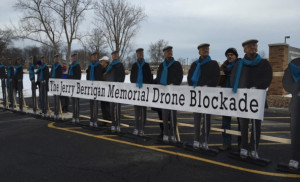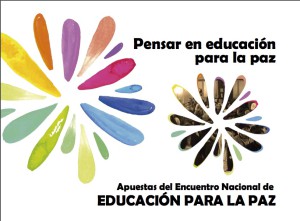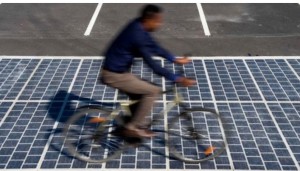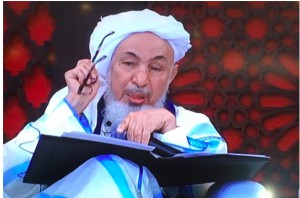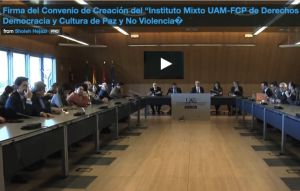. . . EGALITE HOMMES/FEMMES . . .
Un article du Centre d’actualités de l’ONU
Lorsqu’en 1999 une femme se présenta à son hôpital avec l’appareil génital détruit par des tirs d’arme à feu, le gynécologue congolais Denis Mukwege crut d’abord à un cas isolé.
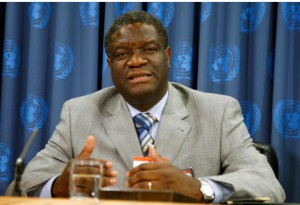
Le Dr. Denis Mukwege, directeur et fondateur de l’hôpital de Panzi à Bukavu, en République démocratique du Congo, et lauréat du Prix des droits de l’homme des Nations unies. Photo ONU/Eskinder Debebe
« Mais après environ six mois, je me suis rendu compte que l’histoire se répétait chez d’autres patientes quasiment à l’identique : ‘J’ai été violée, puis ils m’ont introduit une baïonnette ! J’ai été violée, puis ils ont brulé du caoutchouc sur mon appareil génital !’ », s’est remémoré le Dr. Mukwege dans un entretien récent avec la Radio des Nations Unies et le Centre d’actualités de l’ONU.
La pratique qu’il venait de découvrir, née du conflit sanglant qui opposait à l’époque le gouvernement à des groupes armés en République démocratique du Congo (RDC), allait profondément marquer le restant de sa carrière : l’utilisation de la destruction des organes génitaux féminins comme arme de guerre.
« C’est une situation qui nous est tombée dessus », a confié le Dr. Mukwege, pour expliquer la décision qu’il prit alors de consacrer sa vie professionnelle à la chirurgie reconstructrice des femmes victimes de violences sexuelles – une décision qui mettrait par la suite sa vie et celle de ses proches en danger.
Seize ans plus tard, l’engagement du Dr. Mukwege lui a permis de soigner plus de 40.000 victimes à l’hôpital qu’il a lui-même fondé dans le quartier de Panzi à Bukavu, sa ville natale de la région du Sud-Kivu, à l’est de la RDC.
Celui que la presse a surnommé ‘l’homme qui répare les femmes’ s’est aussi forgé une reconnaissance internationale pour son travail, qui lui a valu de nombreuses distinctions, dont le Prix des droits de l’homme des Nations unies, en 2008, et le prix Sakharov, en 2014. A 59 ans, il a également été plusieurs fois pressenti pour le prix Nobel de la paix.
De ce parcours exceptionnel, le Dr. Mukwege dit qu’il est avant tout le fruit des injustices auxquelles il a été confronté, à commencer par son choix précoce de devenir médecin.
Denis Mukwege est né en 1955 à Bukavu au sein d’une famille pentecôtiste de neuf enfants. Adolescent, il avait coutume d’accompagner son père, qui était pasteur, dans ces déplacements quotidiens. Un jour, ce dernier fut appelé au chevet d’un enfant malade.
« Après avoir prié, il commence à plier bagage et fait mine de partir », s’est remémoré le Dr. Mukwege. « Mais moi, je lui dis : ‘Non Papa ! Quand je suis malade, vous priez, mais vous me donnez aussi des médicaments’ ».
Pour toute réponse, son père lui fit remarquer qu’il n’était pas médecin.
« A ce moment, il y a eu comme un déclic dans ma tête et je me suis dis : je veux être médecin pour faire ce que mon père ne fait pas ».
L’enfant, quant à lui, finit par succomber à sa maladie.
Des années plus tard, après avoir suivi des études de médecine au Burundi, le Dr. Mukwege revint au Sud-Kivu pour commencer sa carrière à l’hôpital de Lemera, à une centaine de kilomètres de Bukavu, en tant que pédiatre.
Durant cette expérience, il fut choqué par la découverte des douleurs des femmes qui, en l’absence de soins appropriés, souffraient régulièrement de graves lésions génitales après avoir accouché. Il décida alors de partir étudier la gynécologie-obstétrique en France, avant de retourner à Lemera à la fin des années 1980.
L’éclatement de la guerre du Congo en RDC (alors le Zaïre), en 1996, allait de nouveau confronter le Dr. Mukwege à l’injustice. Le Sud-Kivu se retrouva en première ligne des combats.
Un beau jour, en arrivant à l’hôpital, le Dr. Mukwege trouva l’ensemble de ses patients assassinés, un drame dont il mit longtemps à se remettre.
« Cela m’a pris deux ans avant de sentir que je pouvais à nouveau être utile. Les gens ne s’imaginent pas à quel point on se sent responsable des malades. Et là, quelqu’un vient et les tue dans leur lit ! », a-t-il confié.
A la même époque, le Dr. Mukwege échappa lui-même de peu à la mort dans une attaque. Alors qu’il transportait un malade pour l’évacuer vers la Suède, son véhicule essuya des tirs de balle. Fort heureusement, ni lui ni les autres passagers ne furent touchés.
Se sentant incapable de continuer à travailler à Lemera, le Dr. Mukwege rentra à Bukavu où il fonda l’hôpital de Panzi en 1999, peu de temps avant sa découverte de l’ampleur des violences sexuelles dans l’est de la RDC.
Un rapport publié en juin 2002 par l’ONG Human Rights Watch fait écho aux constats réalisés sur le terrain par le Dr. Mukwege.
Intitulée ‘La guerre dans la guerre : violence sexuelle contre les femmes et les filles dans l’est du Congo’, cette étude s’appuie sur des recherches conduites dans les provinces du Nord et du Sud-Kivu, alors contrôlées depuis 1998 par des groupes armés de Hutus rwandais et de rebelles burundais en lutte contre le gouvernement du Président Laurent-Désiré Kabila (1997 – 2001), l’armée rwandaise et le Rassemblement Congolais pour la Démocratie (RCD, un groupe rebelle congolais).
Selon ce rapport, la violence sexuelle a été utilisée de façon fréquente et parfois systématique comme une arme de guerre par la plupart des forces impliquées dans le conflit à partir de la fin des années 1990.
Pour la seule ville de Shabunda, « le gouverneur du Sud-Kivu estime que 2.500 à 3.000 femmes et filles ont été violées entre la fin 1999 et la mi-2001 », indique le rapport, qui ne fournit toutefois que peu de données chiffrées à l’échelle régionale.
(Voir suite sur colonne de droite. . . )
(Cliquez ici pour une version anglaise.)
Pregunta(s) relacionada(s) al artículo
Protecting women and girls against violence, Is progress being made?
(. . . suite)
Un autre rapport de Human Rights Watch, datant de juin 2014, indique quant à lui que des dizaines de milliers de personnes ont été violées ou victimes d’autres formes de violences sexuelles dans l’est de la RDC au cours des deux dernières décennies. Intitulée ‘République démocratique du Congo : mettre fin à l’impunité pour les violences sexuelles’, cette étude précise cependant que le nombre exact des victimes n’est pas connu.
Selon le Dr. Mukwege, l’une des difficultés rencontrées pour obtenir des données chiffrées provient du fait que les violences sexuelles étaient et restent encore aujourd’hui un sujet tabou pour les victimes, souvent rejetées par leur propre communauté.
« Les femmes que nous soignons représentent la partie émergée de l’iceberg, car beaucoup d’entre elles ont peur de dire qu’elles ont été violées de crainte d’être répudiées par leur mari », a-t-il expliqué, ajoutant que, si les combats ont aujourd’hui baissé d’intensité dans l’est de la RDC, l’utilisation des violences sexuelles comme arme de guerre par les groupes armés est toujours d’actualité.
Ce tabou est si profondément ancré dans la société congolaise que les auteurs de ces violences, dont certains vivent à proximité de leurs victimes, bénéficient souvent d’une relative impunité.
« La femme, elle, connait le monsieur qui habite en face et qu’elle voit tous les matins, et qui, malheureusement, n’a jamais répondu de ses actes », a déploré le Dr. Mukwege.
Au fil des ans, ce dernier a développé une approche originale, qu’il qualifie de « holistique », pour traiter les victimes, prenant en compte les dimensions à la fois chirurgicale et psychologique, mais aussi les questions de réinsertion sociale et de justice.
« Nous avions commencé en nous limitant à la prise en charge médicale, mais nous nous sommes rapidement rendu compte qu’après avoir été soignées, les femmes refusaient de manger, de boire, de vivre et donc, mourraient également d’une certaine forme de suicide », a-t-il expliqué.
L’hôpital s’est donc doté d’une équipe de psychologues et d’assistantes sociales qui travaillent avec les patientes avant même les interventions de chirurgie reconstructrice.
Pour qu’une fois traitées, les patientes puissent se réinsérer dans leur communauté tout en étant autonomes, le Dr. Mukwege et son équipe travaillent en collaboration avec des ONG qui aident les victimes à se rendre à l’hôpital et leur fournit un soutien économique à leur retour.
« Nous avons constaté que, lorsqu’elles se portent bien physiquement, que psychologiquement elles sentent suffisamment fortes et qu’en plus, sur le plan économique, elles sont autonomes, c’est à ce moment-là que les femmes demandent justice », a expliqué le Dr. Mukwege, qui a créé à cette fin une clinique juridique pour aider les femmes à recouvrer leurs droits et poursuivre les auteurs devant les tribunaux.
Sa volonté de briser le silence entourant les violences sexuelles infligées aux femmes dans l’est de la RDC lui a cependant valu d’être l’objet de nombreuses pressions et menaces. Il fut également la cible de plusieurs tentatives d’assassinat manquées, dont l’une dans le bureau où il réalisait des consultations privées de patients à Bukavu, qui fut criblé de balles. Heureusement, le Dr. Mukwege n’était pas présent lors de l’attaque.
« Qu’est-ce que je fais pour en réchapper. Pas grand-chose. Aujourd’hui, j’ai la protection de la MONUSCO [Mission de l’Organisation des Nations Unies pour la stabilisation en République démocratique du Congo], que nous apprécions beaucoup à l’hôpital, car certains membres de mon staff ont également également été enlevés, torturés et violés », a-t-il expliqué.
S’il se sent rassuré par la présence de la MONUSCO, le Dr. Mukwege a cependant admis que son travail quotidien à Bukavu s’effectue dans des conditions difficiles et que la loi du silence concernant les violences sexuelles en RDC est toujours une réalité.
En septembre dernier, les autorités congolaises ont notamment interdit la diffusion dans le pays d’un film documentaire retraçant son parcours et les activités de l’hôpital de Panzi.
« C’est un film qui montre la force de la femme congolaise, sa capacité à se prendre en charge, sa résilience. […] Les femmes ont une force intérieure bien plus puissante que celle de ceux qui veulent les détruire », a déclaré le Dr. Mukwege, faisant part de son incompréhension face à la censure dont le film a fait l’objet.
Réalisé par Thierry Michel et Colette Braeckman, ‘L’homme qui répare les femmes – la colère d’Hippocrate’ a été projeté le 22 octobre 2015 au siège de l’ONU à New York, en présence du Dr. Mukwege. Quelques jours auparavant, selon la presse, les autorités congolaises ont annoncé la levée de la décision interdisant la projection du film en RDC.
« On ne peut faire des avancées que si on reconnait en premier lieu qu’il y a un problème. Lorsque l’on reste dans la culture du déni, c’est extrêmement dangereux parce que c’est la seule façon de laisser les femmes dans leur souffrance », a-t-il affirmé.
Le Dr. Mukwege a cependant reconnu que des avancées importantes ont été réalisées au cours des 15 dernières années.
« Nous avons de plus en plus de femmes qui non seulement parlent, mais en plus prennent position et deviennent des activistes pour les droits des femmes », a-t-il salué.
En juillet 2014, le Président de la RDC, Joseph Kabila, a par ailleurs nommé une Conseillère spéciale en matière de lutte contre les violences sexuelles et le recrutement d’enfants, Jeannine Mabunda Lioko Mudiayi, signe que les mentalités sont en train de changer dans le pays.
‘L’homme qui répare les femmes’ a toutefois estimé que beaucoup reste à faire avant de pouvoir crier victoire.
Pour y parvenir, a-t-il dit, la communauté internationale doit redoubler d’efforts afin de lutter contre les violences sexuelles liée au conflit.
Le Dr. Mukwege a également appelé la société dans son ensemble à ne pas considérer cette question sous le seul prisme des femmes et du féminisme.
« Quelle est la valeur de notre humanité si des personnes peuvent se permettre de vendre d’autres personnes pour en faire un usage sexuel, des esclaves sexuels », a-t-il déclaré. « Notre société doit dire non et établir une ligne rouge : si certains actes sont commis, c’est la société tout entière qui doit s’y opposer ».
(Merci à Janet Hudgins, le reporter pour cet article)
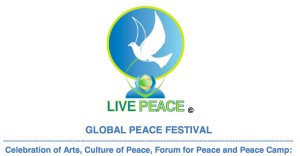
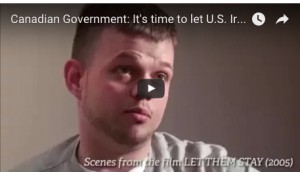
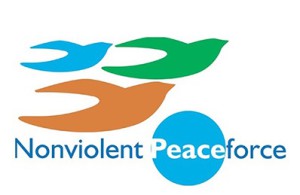
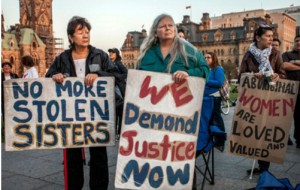
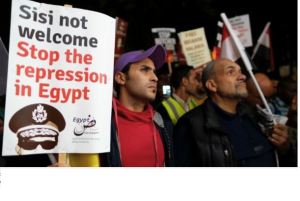
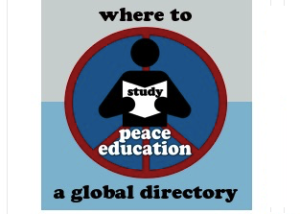
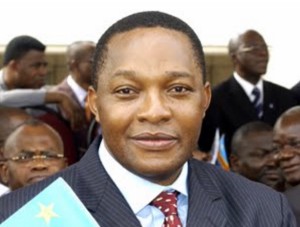

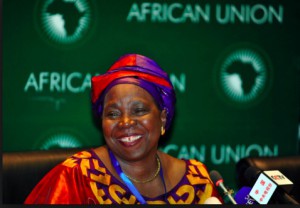
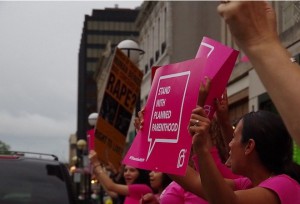
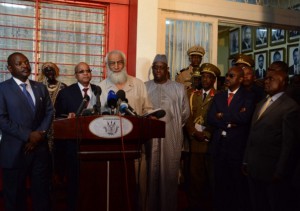 Burundi agrees to accept African Union human rights monitors
Burundi agrees to accept African Union human rights monitors